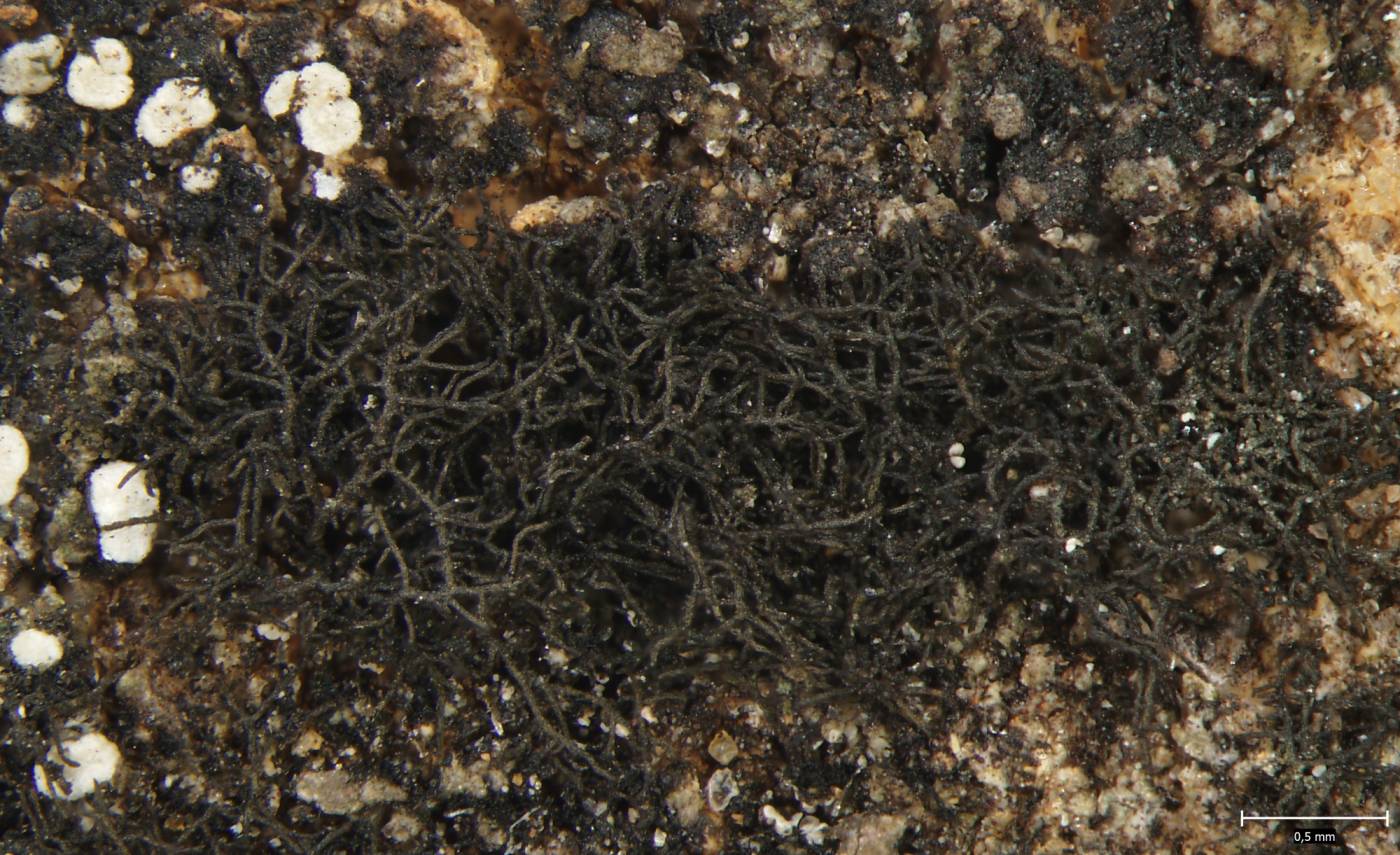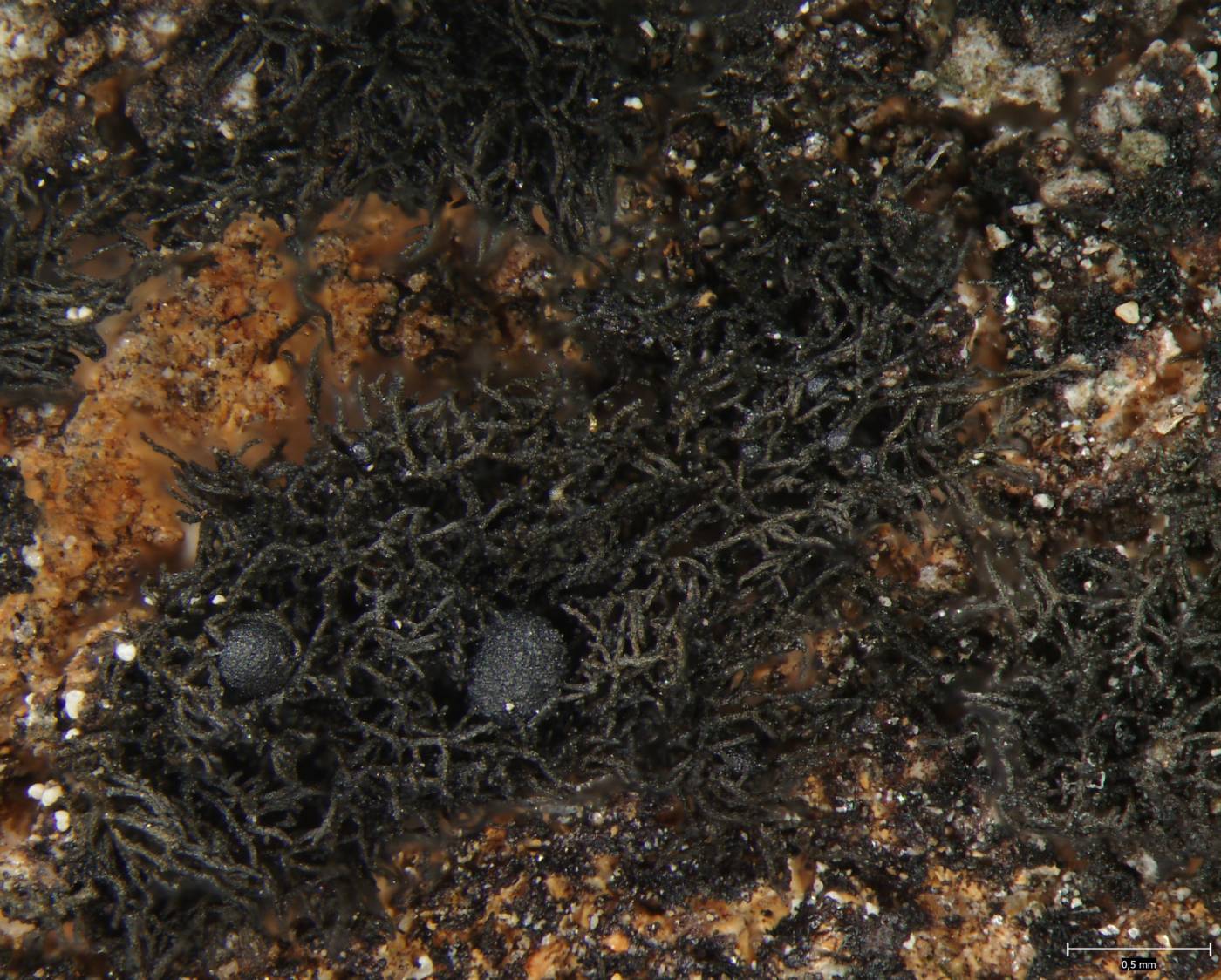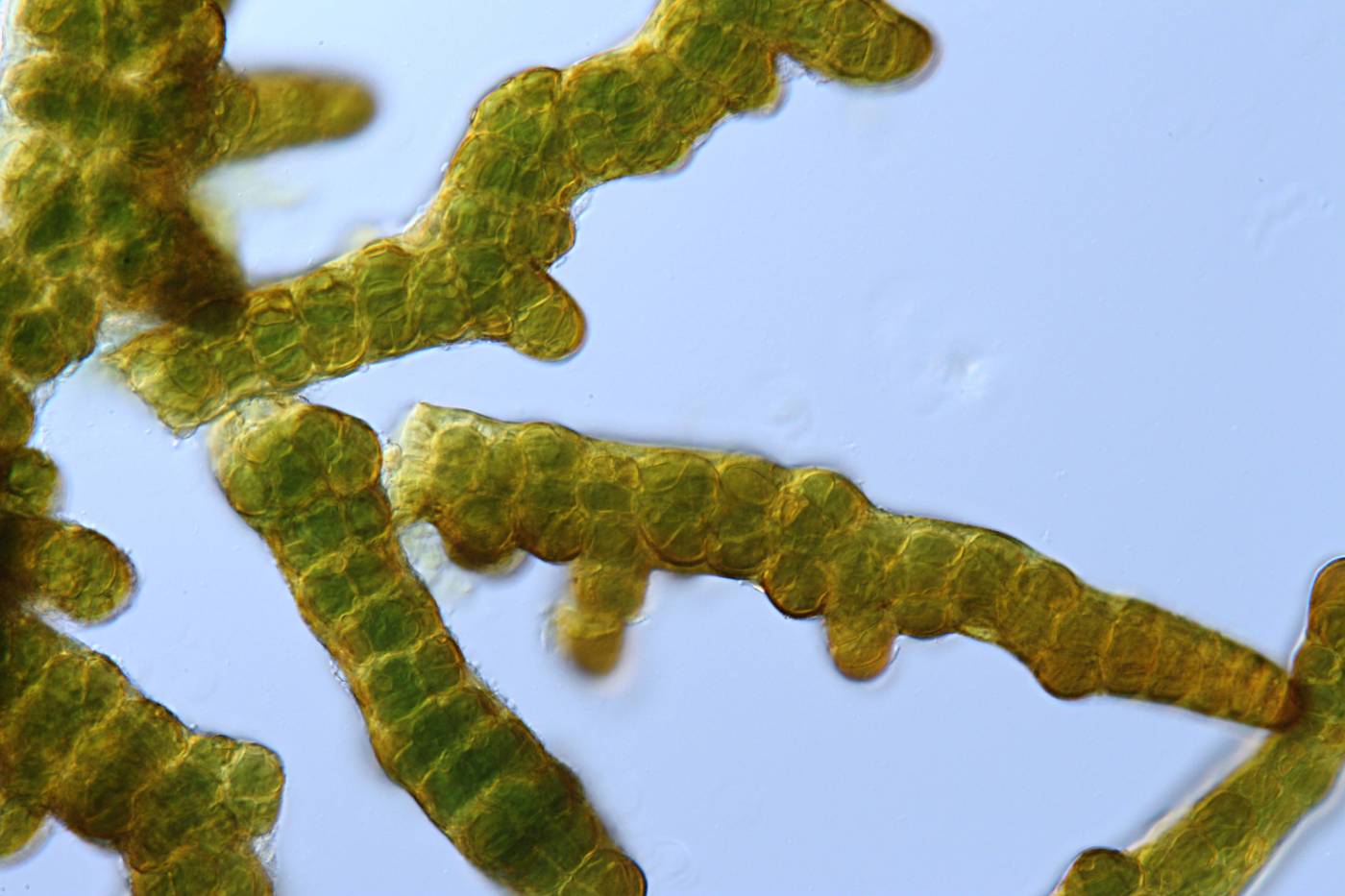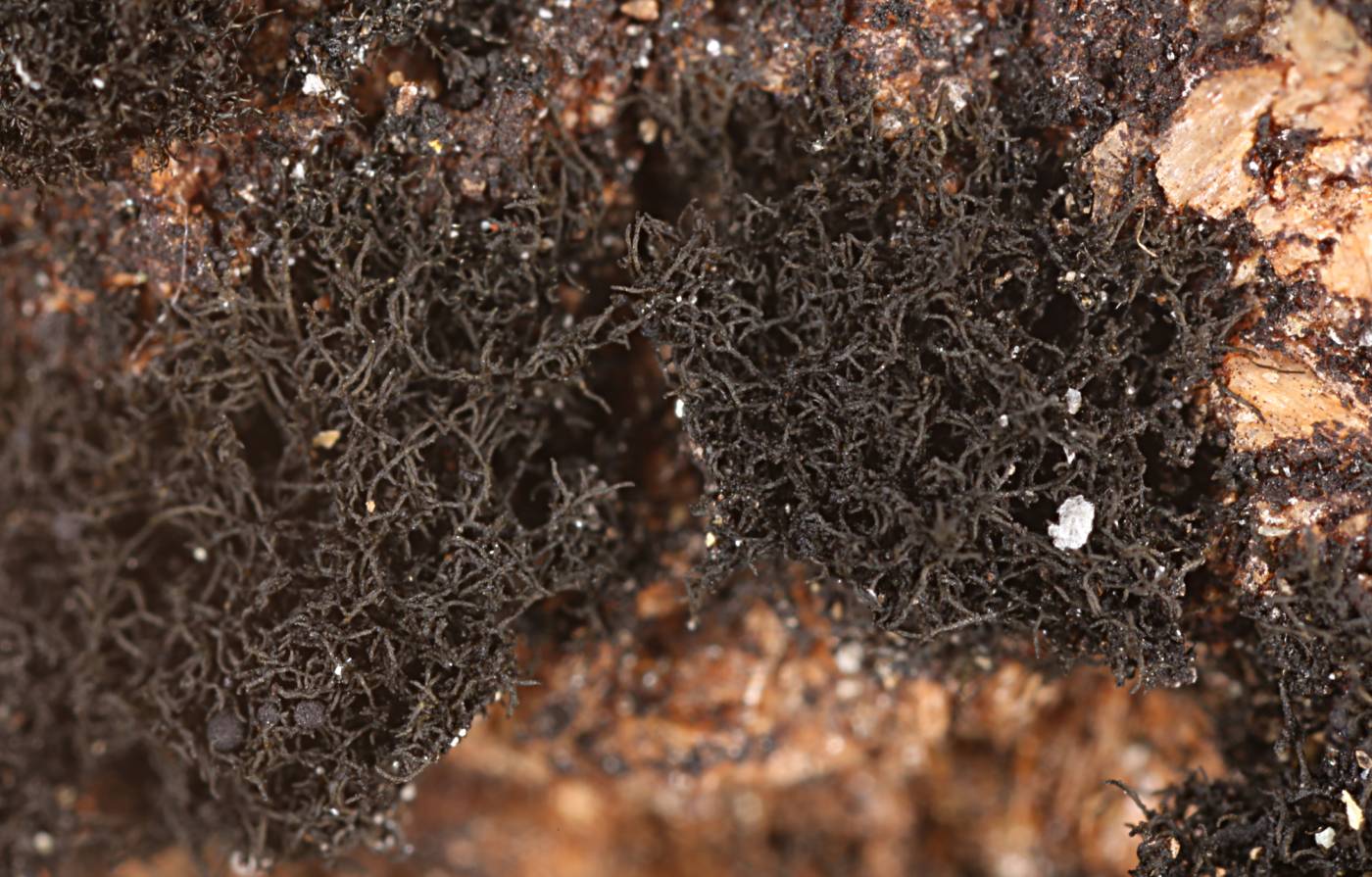Spilonema paradoxum is the only representative of the mainly tropical family Coccocarpiaceae in the Czech Republic. It forms loose but compact dark mats. The delicate dark blueish brown to black filaments of this “primitive” lichen resemble free living cyanobacteria Scytonema, which is its photobiont. It is a rare species, growing on natural siliceous rocks rich in minerals. In contrast to other terrestrial morphologically similar filamentous cyanobacteria it also occurs in dryer and more exposed habitats, such as well-lit boulders in relict pine forests. However, it prefers weathered rocks and horizontal surfaces of hollows with water seepage. Published records come from serpentines at Želivka and Mohelno (Černohorský et al. 1956), but there are also unpublished records from serpentines in the Slavkovský les highlands. The record from the Jizerské hory Mts (Wagner 1995) does not correspond to the known ecology of the species and requires revision.
Literature: Černohorský Z., Nádvorník J. & Servít M. (1956): Klíč k určování lišejníků ČSR. I. díl. – Nakladatelství ČSAV, Praha. Vězda A. (1970): Neue oder wenig bekannte Flechten in der Tschechoslowakei. I. – Folia Geobotanica et Phytotaxonomica 5: 307–337. Wagner B. (1995): Spilonema paradoxum a Thermutis velutina – dvě překvapení v herbáři PRC. – Bryonora 15: 8–9.
taxonomic classification:Ascomycota → Lecanoromycetes → Peltigerales → Coccocarpiaceae → Spilonema
Red List (Liška & Palice 2010):DD – data deficient
Red List (Malíček 2023):C1 – critically endangered
Occurrence in the Czech Republic
All records: 3, confirmed 3. One click on a selected square displays particular record(s), including their source(s).



